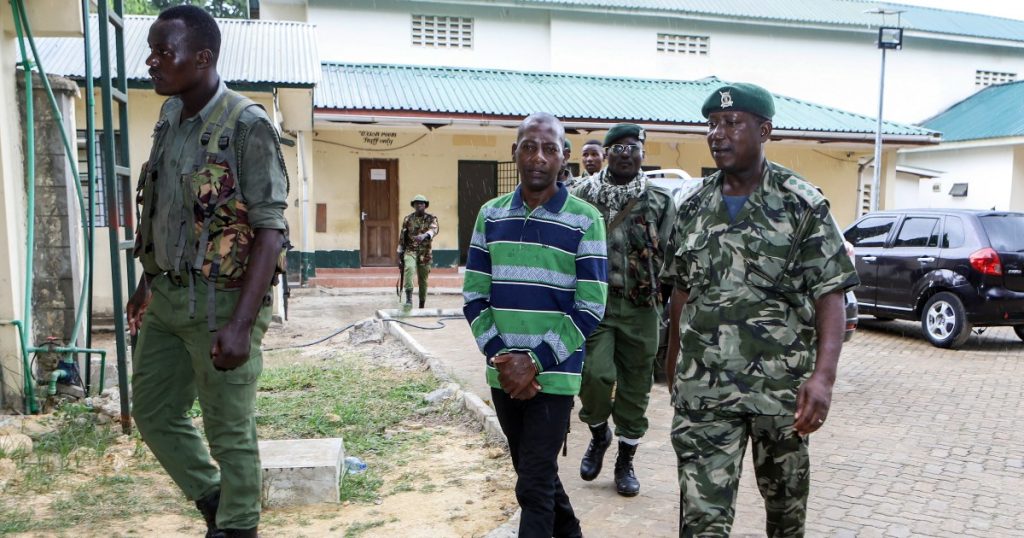Paul Mackenzie, the leader of the Good News International Church in Kenya, is facing charges of murder, child torture, and terrorism following the deaths of over 400 of his followers. The tragic incident occurred when hundreds of his followers starved to death on his instructions in what has been described as one of the world’s worst cult-related tragedies. Mackenzie, who pleaded not guilty to multiple counts of manslaughter, appeared in court in Mombasa alongside 90 other suspects for a hearing that is expected to last four days.
Despite Mackenzie looking frail and thin in court, he still appeared to be in charge to his followers, raising questions about accountability of self-appointing pastors and healing men in a deeply religious country like Kenya. Prosecutor Alexander Jami Yamina has described this manslaughter case as unique, as it involves charges of terrorism and other serious crimes. With at least 420 witnesses prepared by the prosecutors, the trial is expected to shed light on the events leading to the deaths of the followers.
The suspects, including 55 men and 40 women, are facing charges related to the massacre in Shakahola, as well as separate cases of murder, child torture, and cruelty. Some victims’ bodies have been released to their relatives after being identified through DNA analysis, with 34 bodies returned so far. The government of Kenya has called for tighter control of fringe denominations in response to this tragic incident, with reports suggesting that authorities could have prevented the deaths. President William Ruto has appointed a commission to investigate the deaths and review regulations governing religious bodies.
The investigation into the deaths caused by the starvation sect has sparked a broader conversation about the role of religious leaders and the need for oversight in ensuring the safety of followers. The case has highlighted the risks associated with manipulation and control within cult-like organizations, and the importance of holding leaders accountable for their actions. The tragic events have raised concerns about the influence and power that some self-proclaimed pastors may wield, and the potential dangers that can arise when followers blindly obey their instructions.
As the trial unfolds, the testimonies of witnesses and the evidence presented will provide a clearer picture of the events leading to the deaths of over 400 followers of the Good News International Church. The prosecution’s case against Mackenzie and the other suspects is expected to be thorough and comprehensive, with the aim of seeking justice for the victims and holding those responsible for their deaths accountable. Ultimately, the outcome of this trial will not only serve as a form of closure for the families of the victims but also as a reminder of the importance of oversight and regulation in religious organizations to prevent similar tragedies from occurring in the future.


